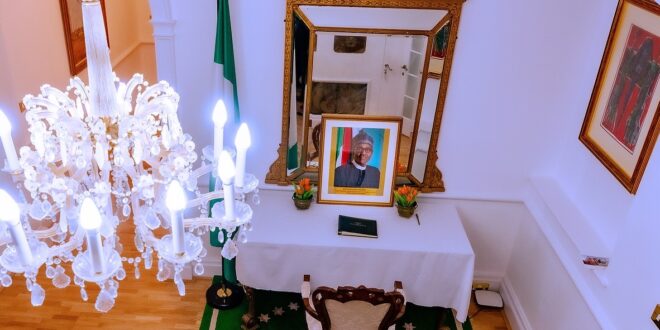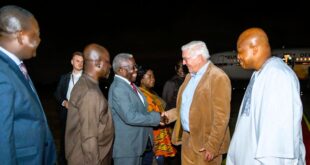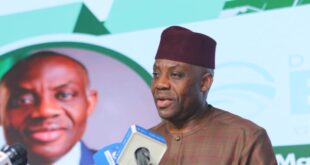Femi Awoniyi reflects on the legacy of Nigeria’s former president, Muhammadu Buhari, who died recently. The general-turned-politician is one of the most controversial figures in Nigeria’s post-independence history. Before his election in 2015, many, especially in the Muslim North, regarded him as a messiah who would rescue the nation from corruption and insecurity and uplift the poor. But after eight years in office, the national verdict on his presidency was largely negative. In this article, our editor examines how Buhari’s long political journey ended in disappointment.
![]()
Nigeria’s former head of state, General Muhammadu Buhari, was laid to rest on 20 July 2025 in his hometown of Daura, in the northern state of Katsina, following national funeral ceremonies attended by dignitaries and ordinary citizens alike. He had died on 13 July in a London clinic after a prolonged illness.
A retired major general, Buhari first came to power through a military coup in December 1983, ruling Nigeria until his ousting in August 1985. After about three decades on the political sidelines, he won the 2015 presidential election, becoming the first opposition candidate to unseat an incumbent in Nigeria’s history. Standing as the flagbearer of the newly formed All Progressives Congress (APC), he campaigned on an anti-corruption platform, promising to restore discipline and security to Africa’s most populous nation.
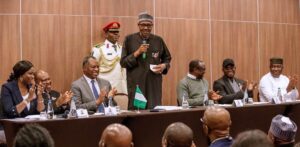
His presidency from 2015 to 2023 will go down as one of the most contentious chapters in Nigeria’s modern history, promising a transformation but ultimately leaving the country more divided, insecure and economically strained.
Buhari, known for his austere reputation from his brief military rule, pledged to fight corruption and crush Boko Haram terrorism in the northeast. On both counts, many believe he failed dismally. Boko Haram remains active, while insecurity has spread nationwide. Violent herdsmen militias, who are largely Fulani – Buhari’s own ethnic group – wreaked havoc, especially in the rural North and Middle Belt. These armed pastoralists, operating with what many saw as impunity and tacit government backing, attacked villages, displaced inhabitants and occupied ancestral lands. Efforts by state governments to address the crisis were often undermined or ignored by the Buhari administration.
The humanitarian consequences were devastating. In Benue State, for instance, nearly a fifth of the population lives in Internally Displaced Persons (IDP) camps. Given that many of the affected states – Benue, Plateau, Kaduna, Katsina, Niger, Sokoto and Zamfara – are major food-producing areas, the violence has severely disrupted agriculture, contributing to rising food prices and deepening hardship for the population.
On corruption, Buhari’s record is also disappointing. His administration presided over some of the most opaque subsidy regimes in Nigerian history – on both petroleum products and the national currency, the naira. These became conduits for systematic looting by allies and cronies, reinforcing the belief that the president’s much-vaunted anti-corruption drive was selective and shielded those close to him.
His human rights record was equally troubling. Buhari’s government was widely criticised for the brutal suppression of peaceful protests – notably the #EndSARS demonstrations against police brutality in October 2020. The protests were met with a violent military crackdown, resulting in dozens – possibly hundreds – of deaths. His administration also responded with excessive force to the activities of the Indigenous People of Biafra (IPOB), causing hundreds of deaths and further escalating tensions in the southeast, which still remains restive.
Economically, Nigeria under Buhari recorded mixed results. A sharp decline in oil prices triggered a recession in 2016. Though the economy later recovered, inflation soared to historic highs, rendering basic goods unaffordable for many. To his credit, some major infrastructure projects were completed, including the Lagos–Ibadan rail line, the Second Niger Bridge and several highways. However, these were not enough to offset the impacts of population growth, stubbornly high youth unemployment and a rising debt burden.
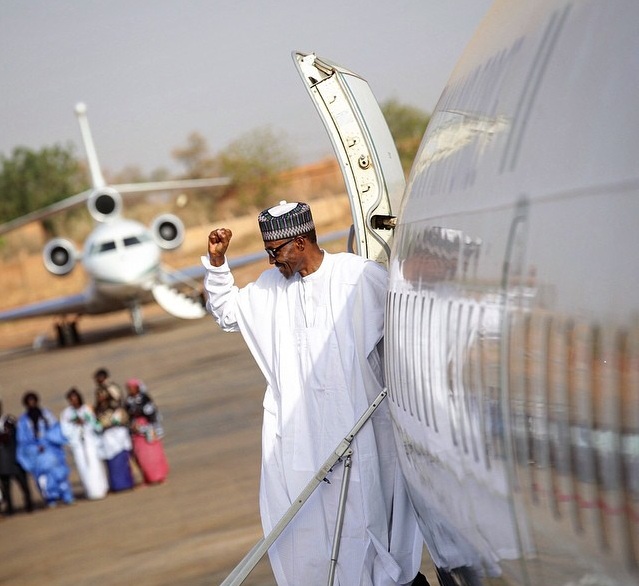
Perhaps most emblematic of his leadership style were the extended periods during which Buhari was absent from the country for medical treatment abroad. These absences, often poorly explained, became symbols of a presidency disconnected from the daily struggles of ordinary Nigerians.
As Nigerians reflect on Buhari’s legacy, they confront the enduring question of trust in leadership. Once hailed as a principled disciplinarian capable of cleansing the political space, Buhari ultimately proved unable or unwilling to deliver on his promises. By the end of his tenure in May 2023, the myth of Buhari as a national saviour – especially in northern Nigeria, where he had enjoyed cult-like popularity for decades – had crumbled. Across the rest of the country, he is also remembered as a leader who lacked a truly national spirit, unable to rise above the primordial loyalties that shaped his favouritism towards those he considered his primary constituents in the handling of national affairs.
The lesson from Buhari’s failed presidency is sobering: there are no messiahs in politics. Citizens must abandon blind loyalty and actively participate in governance, demanding transparency, accountability and results from those in power. As Cameroonian historian and political theorist Joseph-Achille Mbembe once said, “Democracy has a price—and no one will pay it for you” if you want to enjoy it.
______
Femi Awoniyi is the publisher of The African Courier
![]()
READ ALSO Nigerian Diplomats in Germany Meet Citizens in Town Hall Meeting
 THE AFRICAN COURIER. Reporting Africa and its Diaspora! The African Courier is an international magazine published in Germany to report on Africa and the Diaspora African experience. The first issue of the bimonthly magazine appeared on the newsstands on 15 February 1998. The African Courier is a communication forum for European-African political, economic and cultural exchanges, and a voice for Africa in Europe.
THE AFRICAN COURIER. Reporting Africa and its Diaspora! The African Courier is an international magazine published in Germany to report on Africa and the Diaspora African experience. The first issue of the bimonthly magazine appeared on the newsstands on 15 February 1998. The African Courier is a communication forum for European-African political, economic and cultural exchanges, and a voice for Africa in Europe.

